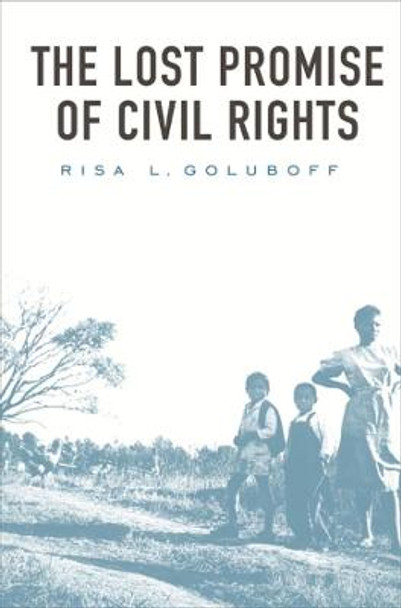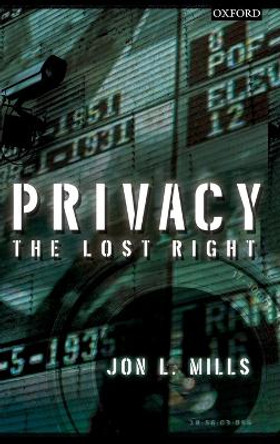Description
Listen to a short interview with Risa GoluboffHost: Chris Gondek | Producer: Heron & Crane
In this groundbreaking book, Risa L. Goluboff offers a provocative new account of the history of American civil rights law. The Supreme Court's decision in Brown v. Board of Education has long dominated that history. Since 1954, generations of judges, lawyers, and ordinary people have viewed civil rights as a project of breaking down formal legal barriers to integration, especially in the context of public education. Goluboff recovers a world before Brown, a world in which civil rights was legally, conceptually, and constitutionally up for grabs. Then, the petitions of black agricultural workers in the American South and industrial workers across the nation called for a civil rights law that would redress economic as well as legal inequalities. Lawyers in the new Civil Rights Section of the Department of Justice and in the NAACP took the workers' cases and viewed them as crucial to attacking Jim Crow. By the time NAACP lawyers set out on the path to Brown, however, they had eliminated workers' economic concerns from their litigation agenda. When the lawyers succeeded in Brown, they simultaneously marginalized the host of other harms--economic inequality chief among them--that afflicted the majority of African Americans during the mid-twentieth century. By uncovering the lost challenges workers and their lawyers launched against Jim Crow in the 1940s, Goluboff shows how Brown only partially fulfilled the promise of civil rights.
The Lost Promise of Civil Rights is brilliant. It will revolutionize our understanding of civil rights, what they mean, and where they come from. The Lost Promise of Civil Rights will be widely read and debated, and it will place Goluboff at the front rank of twentieth-century American historians. -- Sarah Barringer Gordon, University of Pennsylvania Law School Risa Goluboff offers readers a brilliant reconceptualization of civil rights litigation. Her book deals sensitively, and better than any other work, with how open to interpretation and development the idea of civil rights was in the 1940s, and how possibilities were gradually shut down. Combining a legal-realist sense of the openness of legal arguments with a historians sensitivity to the way in which real lawyers make real choices, Goluboff offers a model for legal history. -- Mark Tushnet, Harvard Law School A marvelous book. Elegantly written, prodigiously researched, and powerfully argued, Lost Promise recreates a pre-Brown universe in which civil rights included labor rights and a commitment to economic equality. The book places Goluboff at the forefront of a new generation of legal historians devising creative and novel ways of understanding the civil rights movement -- Michael J. Klarman, author of From Jim Crow to Civil Rights The Lost Promise of Civil Rights is original, provocative, and persuasive. By uncovering the forgotten history of the NAACP's labor litigation, Risa Goluboff opens up new ways of thinking about the tangled connections between racial and economic justice. When it came to the working class, the civil rights movement's march through the courts reached a dead end. This book is essential to understanding America's still unfinished struggle for equality. -- Thomas J. Sugrue, author of The Origins of the Urban Crisis
About the Author
Risa L. Goluboff is Professor of Law, Professor of History, and Caddell & Chapman Research Professor at the University of Virginia.
Reviews
The Lost Promise of Civil Rights is brilliant. It will revolutionize our understanding of civil rights, what they mean, and where they come from. The Lost Promise of Civil Rights will be widely read and debated, and it will place Goluboff at the front rank of twentieth-century American historians. -- Sarah Barringer Gordon, University of Pennsylvania Law School
Risa Goluboff offers readers a brilliant reconceptualization of civil rights litigation. Her book deals sensitively, and better than any other work, with how open to interpretation and development the idea of civil rights was in the 1940s, and how possibilities were gradually shut down. Combining a legal-realist sense of the openness of legal arguments with a historians sensitivity to the way in which real lawyers make real choices, Goluboff offers a model for legal history. -- Mark Tushnet, Harvard Law School
A marvelous book. Elegantly written, prodigiously researched, and powerfully argued, Lost Promise recreates a pre-Brown universe in which civil rights included labor rights and a commitment to economic equality. The book places Goluboff at the forefront of a new generation of legal historians devising creative and novel ways of understanding the civil rights movement -- Michael J. Klarman, author of From Jim Crow to Civil Rights
The Lost Promise of Civil Rights is original, provocative, and persuasive. By uncovering the forgotten history of the NAACP's labor litigation, Risa Goluboff opens up new ways of thinking about the tangled connections between racial and economic justice. When it came to the working class, the civil rights movement's march through the courts reached a dead end. This book is essential to understanding America's still unfinished struggle for equality. -- Thomas J. Sugrue, author of The Origins of the Urban Crisis
Goluboff's argument is clear and well-organized. Although she draws on a wide range of primary material and weaves together an impressive amount of scholarship from law, history, and political science, she wears her learning lightly and writes in a manner that is accessible to the non-specialist. Goluboff's book also provides an important counterweight to the common scholarly focus on judicial decision making...Goluboff has produced a truly excellent work of legal history that elegantly demonstrates how the basic terms of modern civil rights came to be established. -- Keith J. Bybee * Law & Politics Book Review *
This is an extraordinary book, the most important reinterpretation of the legal history of the Civil Rights Movement in many years, and one of the best first books this reviewer has ever read...This meticulously researched, beautifully written book constitutes a landmark in legal history. -- S. N. Katz * Choice *
In her new and intellectually stimulating book...Risa Goluboff mines the legal pre-history of Brown and unearths a long-forgotten approach-specifically, civil rights claims based on class and economic opportunity. Asking us to put aside the reverence we have for the landmark decision, Goluboff argues something that, on the surface, sounds heretical: that the full-frontal attack on Jim Crow that defined the civil rights era may not have been the best strategy for winning equality and justice...The questions raised by Goluboff are uncomfortable, but pressing: Was the NAACP's victory in Brown a pyrrhic one? And if so, what does that mean for the last half-century of civil rights achievements? -- Mary Frances Berry * Democracy Journal *
A scholar of history as well as law, Goluboff has done a significant service for all those concerned about racism's continuing viability. Her review of the civil rights history of the 1930s and 1940s un-earths the quasi-slave status of many black workers well into the Twentieth Century. -- Derrick Bell * Virginia Law Review *
Awards
Winner of Order of the Coif Book Award 2010. Joint winner of James Willard Hurst Prize 2008. Nominated for William Nelson Cromwell Book Prize 2008 and John H. Dunning Prize 2009 and Littleton-Griswold Prize 2008 and Wesley-Logan Prize 2008 and Ralph J. Bunche Award 2008 and Gladys M. Kammerer Award 2008 and James A. Rawley Prize 2008 and OAH Frederick Jackson Turner Award 2008 and Ellis W. Hawley Prize 2008 and OAH Liberty Legacy Foundation Award 2008 and Bancroft Prize 2008 and Allan Sharlin Memorial Award 2008 and PROSE Awards 2007 and J. Anthony Lukas Book Prize 2008 and David J. Langum, Sr. Prize in American Legal History or Biography 2007 and Anisfield-Wolf Book Awards 2008 and Vincent P. DeSantis Prize 2009 and Charles S. Sydnor Award 2008.
Book Information
ISBN 9780674034693
Author Risa L. Goluboff
Format Paperback
Page Count 384
Imprint Harvard University Press
Publisher Harvard University Press











